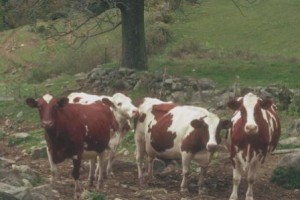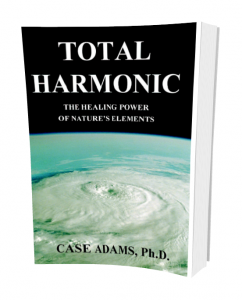Vermont’s Cow Power a Success
Cow manure is a great source of energy. This has been proven out over a seven-year study.
The State of Vermont recently completed a seven-year study that showed that dairy cow manure can produce a significant amount of power. The study analyzed the energy production of six dairy farms for seven years. The dairy farms produced 12 million kilowatt-hours (12 megawatt-hours) of electricity on average each year from their cow manure.
In this article
Cow power study
During the study, 4,600 households utilized the ‘cow power.’
The dairy cow produces about 30 gallons of dung per day. This means that a mid-sized farm of 500 cows will produce 15,000 gallons each day. The dung needs to be fermented in an anaerobic digester for three weeks before being converted to methane gas by bacteria. The gas is brought through ducts to a generator that runs off of methane gas, which produces the electricity.
The heat byproduct from the generator is used to heat the digester, which remain at 100 degrees F during the fermentation process.
The study fed the energy produced by the manure into the electricity grid. From there it was made available to electric customers. The six farms remain online with the grid today. Each farm has more than 500 cows, and will each produce between .8 and 3.5 million kilowatt-hours per year.
If released into the atmosphere, the methane that cow dung produces is 20 times more damaging to the environment (donates more carbon) than carbon dioxide emissions.
The new program, dubbed “Cow Power,’ was seen as feasible only when electricity costs are slightly higher. The cow power customers, for example, paid $.04 per kilowatt hour higher than conventional energy during the program. On the other hand, the hidden costs of carbon pollution and the costs for importing oil for electricity make this a feasible program in the eyes of the researchers and the State of Vermont.
Methane issues
Yes, it is true that the methane that off-gases as a result of dairy farms contributes carbon to our atmosphere. But using that manure for power is also an efficient way to capture and utilize the methane before it seeps into the environment. We can certainly solve environmental problems if we put our minds to it. We can certainly save the planet if we want to. Better than offshore oil drilling. And better than getting oil on my surfboard.
References:
Green Mountain Power. Understanding Power.
Gong CM. Microbial safety control of compost material with cow dung by heat treatment. J Environ Sci (China). 2007;19(8):1014-9.
Adams C. Total Harmonic: The Healing Power of Nature’s Elements, Logical Books, 2012
















